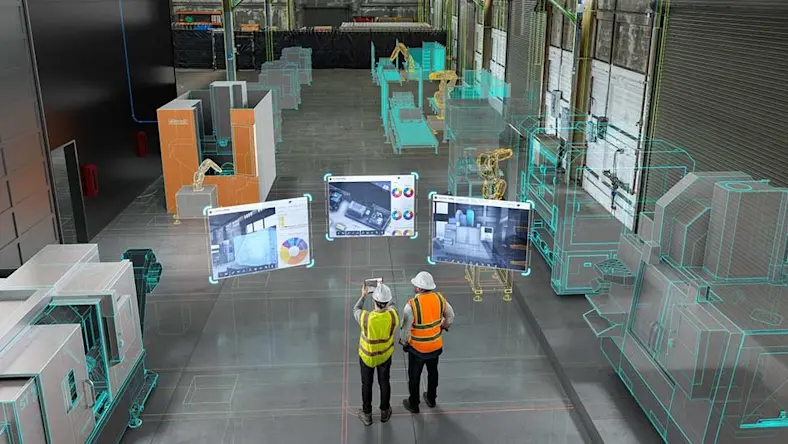& Construction

Integrated BIM tools, including Revit, AutoCAD, and Civil 3D
& Manufacturing

Professional CAD/CAM tools built on Inventor and AutoCAD
AI is still at the infancy of its evolution. The AI we have today, 10 years from now, is gonna look like a toy. So if you think of that, you go, “Oh my goodness, so what’s gonna happen over the next 10 years?”
I run a research organization that was specifically created to look 3 to 10 years into the future, both in terms of technology, but also in terms of our industries to understand how technology and industry are gonna come together to serve our customers in the world and all the products we make in different ways in the future.
The current design and make industry is still stuck in so many of the old, file-based, incompatible formats. Many industries still function in certain ways that require these older technologies. They’re kind of a barrier to be able to go faster, to be able to be more reactive to your needs, and to change quicker. A cloud platform would begin to resolve a bunch of these issues.
You can imagine your bottom layer of what is a cloud platform is what we refer to as “granularized data.” It’s how data gets decomposed into its atoms. What happens on top of that, is once you’ve done that, it becomes much easier now to build flexible workflows, so that every single person in your company who has got different work to do can have the right workflow, at the right time, and against just the right data. They don’t have to be worried about what software they’re running or what application.
It’s all kind of seamlessly flowing and it’s interconnected. And it has to be an ecosystem. It has to be extensible, because nobody can build all solutions to everybody. We as Autodesk can’t build every workflow for every one of our customers.
Everybody’s got different needs. And extensibility and customizability is so utterly critical. And you set the stage for creating an ecosystem where other producers can come and extend their platform, they can build customizations, they can buy customizations. AI is gonna radically change the future of all of our industries and all of our customers.
There are a lot of people in the world that have incredibly creative ideas to solve problems. Today they have to use fairly complex software that is traditional software that is often not their forte. It’s not something they’re necessarily good at. With a lot of the new technologies, these technologies are becoming more and more accessible.
AI’s gonna kick in and it’s gonna say, “Hey, don’t worry, I’ve got you. I’m gonna get all this data, I’m gonna analyze it, I’m gonna break it down so that one core insight, that one core signal that I think you need and I’m gonna give it to you,” you know, so you don’t have to worry about spelunking around to trying to find it.
We’ve got a bunch of very tough problems to solve in the world, and these are not problems that are gonna be solved with sort of traditional mechanisms. This is going to require new kinds of technologies, new kinds of techniques. So what really excites me is I think it’ll make certain professions, I think a lot more accessible to more people. The greatest thing for me would be, we see more people being able to use technology to solve more problems in the world, and tools and technology that enable that, that would really make me feel that we’ve done our job.
Emerging Tech
Emerging Tech
Executive insights


